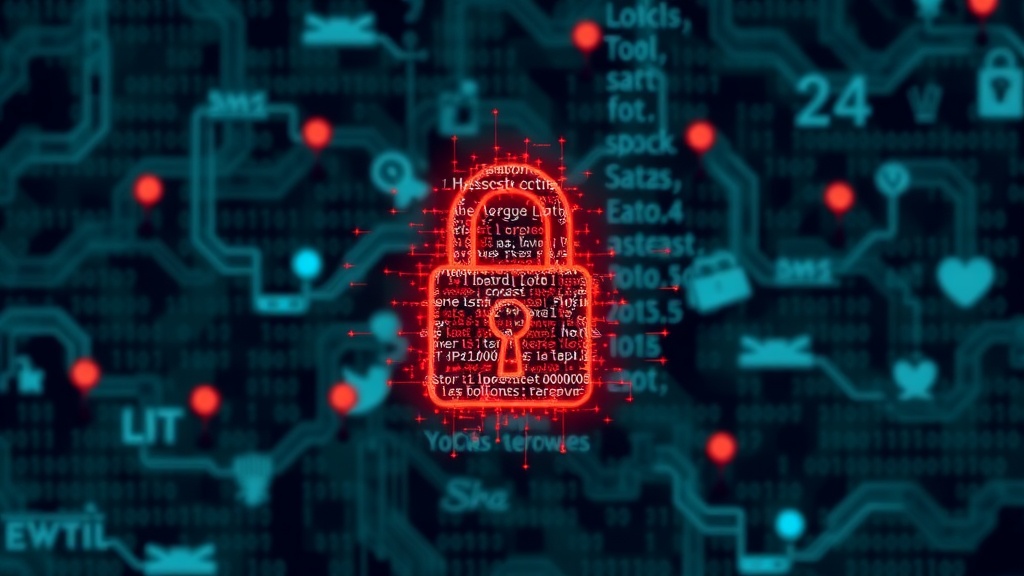In today’s digital world, the security of online communications is more important than ever. Whether you are sending an email, chatting with a friend, or making a purchase, encryption plays a vital role in protecting your messages. Understanding how encryption works can help you appreciate the technology behind secure communications.
Encryption is a method used to protect information by transforming it into a secure format that can be read only by someone who has the proper key to decrypt it. When you send a message, encryption scrambles the content so that if anyone intercepts it, they won’t be able to understand it. This process is essential for maintaining privacy and security in online communications.
How Encryption Works
At its core, encryption relies on complex algorithms to encode information. Here’s a simplified explanation of how the process usually works:
- Plaintext: This is the original message or data that you want to send.
- Encryption Algorithm: This is a mathematical procedure that converts plaintext into ciphertext, which appears as random characters.
- Ciphertext: This is the encrypted message that cannot be read without decryption.
- Decryption Key: This key is required to convert the ciphertext back into plaintext. Only authorized users have access to this key.
The Types of Encryption
There are two main types of encryption used for online messages: symmetric and asymmetric encryption.
Symmetric Encryption
In symmetric encryption, the same key is used to both encrypt and decrypt the message. This method is fast and efficient, making it suitable for transmitting large amounts of data. However, the challenge lies in securely sharing the key with the sender and receiver without it being intercepted by malicious actors.
Asymmetric Encryption
Asymmetric encryption, also known as public-key encryption, uses two keys: a public key and a private key. The public key is shared with anyone who needs to send you a message, while the private key is kept secret. When someone sends you an encrypted message using your public key, only your private key can decrypt it. This method is more secure for exchanging information over the internet.
Benefits of Using Encryption
Using encryption offers several benefits that enhance the security of online messages:
- Confidentiality: Encryption ensures that only authorized parties can read the messages.
- Integrity: It helps verify that the message has not been altered during transmission.
- Authentication: Encryption verifies the identity of the sender, ensuring that the message comes from a legitimate source.
- Trust: When users know that encryption is in place, they feel safer sharing sensitive information online.
Real-World Applications of Encryption
Encryption is utilized in various real-world applications, significantly aiding in secure communications:
- Messaging Apps: Most popular messaging applications, like WhatsApp and Signal, use end-to-end encryption to keep conversations private.
- Email Services: Secure email providers, such as ProtonMail, incorporate encryption to ensure that only the intended recipient can access the messages.
- Online Banking: Banks use encryption to secure your financial transactions and personal data while communicating over the internet.
- Data Storage: Many cloud services encrypt stored data to protect it from unauthorized access, ensuring privacy and security.
Challenges and Considerations
While encryption provides significant protection, it is not foolproof. Here are some challenges to consider:
- Key Management: Properly securing and managing encryption keys is critical; losing access to a key may render the data irretrievable.
- Regulations: Some countries have strict laws governing encryption, which may impact businesses and individuals.
- Performance: Encrypting and decrypting data can introduce latency, potentially slowing down communications.
Encryption is a powerful tool that safeguards online messages. By understanding how it works and its importance in our digital interactions, you can take proactive steps to protect your communication and personal information.
The Role of Encryption in Enhancing Privacy and Trust in Digital Communication
In today’s digital world, privacy and trust are essential for effective communication. The increasing frequency of data breaches and online threats makes it more important than ever to protect sensitive information. One of the most effective ways to ensure secure online communication is through encryption. Understanding how encryption secures messages can help users feel more confident when sharing information online.
Encryption is a process that transforms legible data into an unreadable format, ensuring that only authorized users can access it. When you send a message over the internet, encryption plays a crucial role in safeguarding your information. Here’s a closer look at how it enhances privacy and trust in digital communication:
How Encryption Works
Encryption relies on algorithms and keys. An algorithm is a set of rules or steps used to encode the information, while a key is a value that unlocks this code. This is how the process unfolds:
- Plaintext: This is the original message you type, such as an email or chat message.
- Encryption: The algorithm and key convert plaintext into ciphertext, a scrambled version that is unreadable without the proper key.
- Transmission: The encrypted message is sent over the internet.
- Decryption: The recipient uses the same key (or a corresponding one) to convert the ciphertext back into plaintext.
This process ensures that even if a hacker intercepts your messages, they will see only a jumble of characters instead of the actual content. Thus, encryption forms a protective barrier that maintains the confidentiality of information shared online.
Types of Encryption
Encryption typically falls into two categories: symmetric and asymmetric. Understanding these types can enhance your knowledge and trust in the security of your messages.
- Symmetric Encryption: In this method, the same key is used for both encryption and decryption. It’s fast and efficient but poses a risk if the key is compromised.
- Asymmetric Encryption: This method uses two keys – a public key for encryption and a private key for decryption. It is generally more secure, especially for transmitting sensitive information, as only the recipient has access to the private key.
The Importance of Encryption for Privacy
As digital communication becomes more pervasive, protecting your privacy has become a pressing concern. Here are some key ways encryption fulfills that role:
- Data Protection: By keeping information hidden from unauthorized viewers, encryption protects personal data, financial information, and sensitive business communications.
- Secure Transactions: E-commerce websites and online banking applications use encryption to secure transactions, ensuring sensitive information like credit card numbers remains confidential.
- Safe Sharing: With the rise of remote work and online collaboration, encryption ensures that shared documents and messages remain safe from prying eyes.
Building Trust through Transparency
Encryption not only enhances privacy but also plays a vital role in building trust between users. Here’s how encryption fosters trust in your online interactions:
- Reassurance: Knowing that your messages are secure encourages open communication. This is crucial for personal relationships and professional collaborations.
- Regulatory Compliance: Many industries are required by law to implement strong encryption practices. Companies that comply with these regulations demonstrate their commitment to user security and privacy.
- Brand Integrity: Businesses that prioritize encryption can build a reputation for protecting customer data, which enhances brand loyalty.
As the digital landscape continues to evolve, so does the necessity for robust security measures like encryption. By ensuring that your online messages are protected, encryption helps create a safe environment for all users to communicate freely and confidently. Recognizing the role of encryption in protecting our information empowers us to engage with the digital world while preserving our privacy and fostering trust.
Conclusion
As we’ve explored, encryption plays a vital role in protecting online messages and enhancing the overall security of our digital communications. By transforming readable data into a scrambled format, encryption ensures that only authorized parties can access sensitive information. This technology is essential in creating a barrier against hackers and cybercriminals who seek to intercept private messages.
Moreover, encryption significantly boosts privacy and trust in our online interactions. When you know your messages are encrypted, you can communicate with confidence, whether sharing personal details or discussing sensitive information. This trust is foundational in a world where digital communication is paramount.
In today’s interconnected landscape, where data breaches and privacy violations are increasingly common, understanding and embracing encryption methods is more important than ever. Everyone, from individuals to businesses, should prioritize adopting secure communication practices that incorporate encryption. By doing so, we not only protect our own information but also contribute to a more secure and trustworthy digital environment for all.
Ultimately, the knowledge of how encryption protects online messages empowers us. It encourages us to make informed decisions about our digital communications while advocating for stronger protections in our ever-evolving online world. With encryption, we can confidently navigate the digital landscape, knowing that our private conversations remain secure and confidential.


